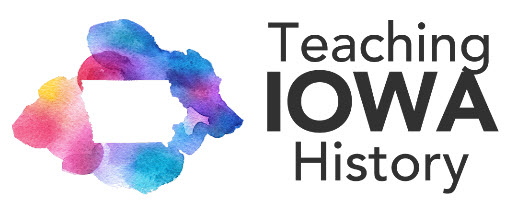The Great Depression of the 1930s devastated Iowa families. Americans suffered from its negative effects for years. Millions lost their jobs and incomes fell across the nation. The depression was an economic calamity. In 1932 Franklin Roosevelt was elected President of the United States—he promised a “new deal” of government programs that would fight the crisis. A variety of New Deal programs attempted to reduce unemployment. One of them was the Civilian Conservation Corps (CCC). It provided government jobs to 500,000 young men nationwide in its first two years. The CCC lasted for nine years, providing jobs to three million unemployed men in the United States.
The CCC operated more than fifty camps across Iowa during the depression, starting in 1933. It hired men between the ages of 18 and 25 to complete conservation work overseen by the army, ranging from planting trees to building campgrounds, roads, trails, and bridges. In Iowa, the CCC built state parks and preserves and wildlife refuges. Nearly 13,000 men were employed at 34 Iowa camps by the end of 1933 and more than 30,000 Iowans had worked for the program by the time it ended. Workers received $30 a month, with $22 to $25 automatically sent home. Money from CCC employment helped families put food on their tables and pay mortgages.
CCC camps were located across the state and employed white, Latino and native men. Each location had about two hundred enrollees. Camps began with tents, but were upgraded to wooden barracks; they also had dining and recreation halls, which might have a pool table, checkers and card games. One of the first camps opened near Ledges State Park, south of Boone. Men planted 350,000 trees and completed projects to combat erosion. The CCC’s Indian Division employed more than 100 Meskwaki. A camp in Tama enrolled about twenty men from the tribe, where they built a community and cultural center, as well as other infrastructure. Government employment provided much-needed income, as the depression had eliminated job opportunities nearby.
The CCC also provided education to its workers. Young men from the Ledges State Park camp studied at Boone High School to earn high school credits. They took classes at night. A majority of teachers in Boone volunteered their services to the CCC. Another camp in Chariton offered courses in truck driving, auto mechanics, and mathematics. At other camps men could take English and journalism. When they were not working or studying, workers entertained themselves, playing basketball, baseball, football, or competing in boxing tournaments. Card games, ping-pong, and pool were also popular.
“Excerpt from a book in progress, published with permission of the author, 27 January 2020.”
